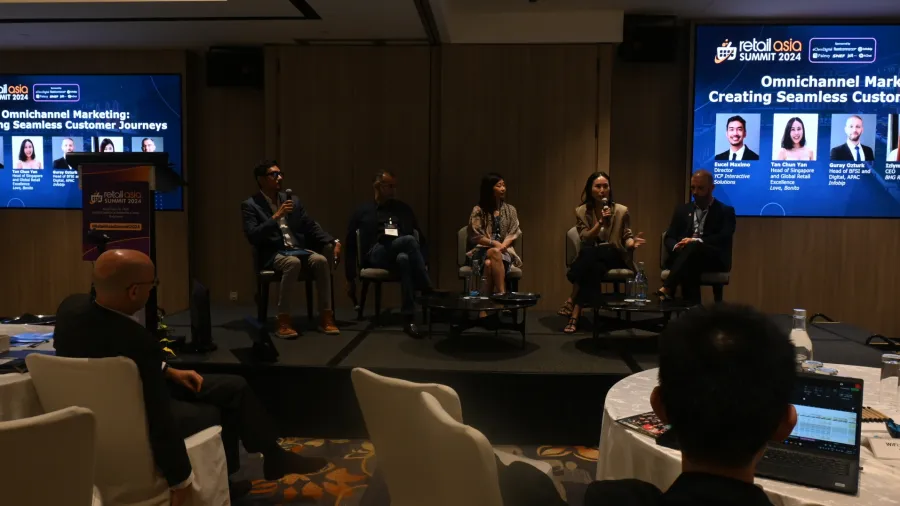
Retailers told to tap omnichannel marketing strategies
Data should be captured from all entry points for the best hyper-personalisation.
Retailers should invest in omnichannel marketing strategies to ensure consistent branding across online and offline platforms, industry leaders told the recent Retail Asia Summit 2024 in Singapore.
Omnichannel marketing is becoming more relevant than traditional marketing, according to panelists led by Izlynn Chan, CEO at Beijing Hualian Group (BHG) Retail Real Estate Investment Trust (REIT), Deepak Subramanian, executive vice president at Unilever, Tan Chun Yan, head of Singapore and global retail excellence at Love, Bonito, and Guray Ozturk, head of banking, financial services and insurance and digital for Asia-Pacific at Infobip.
Ozturk said retailers should capture data from all entry points and use these to target specific people through hyper-personalisation. “From a technological standpoint, if you do not have this system in place, you cannot retarget your customers,” he said.
Chan said BHG Retail REIT, which manages six malls in China with 1,000 tenants, uses data analytics to personalise discounts and promotions based on events held at their properties.
“When we started doing a lot more targeted promotions, it translated to increased footfall and sales and higher membership rates for retail shops as well,” she said.
She added that the company accelerated its online presence by leveraging WeChat, China's most popular social app with a user base of 1 billion.
Yan, whose business is in the clothing industry, said Love, Bonito uses consumer data to segment them into tiers to further personalise their perks. This has helped the company retain 33% of customers it acquired more than a decade ago.
“Also, by doing a few hours of Instagram live, the company saw a spike in its online traffic,” she pointed out.
Subramanian, for his part, said it is different with consumer goods because growth is defined by the mental availability of consumers. “As the number of touch points explodes, mental availability and memorability become harder because brands are not consistent at times.”
Unilever leverages distinctive brand assets such as sound, colour, and symbols consistently to build memory structures upon consumers, he said.
He added that the company had to adjust its business and content model. “Rather than having the organisation working at the full portfolio scale, we organised ourselves in a way that the budget setting, the asset development, the execution, are all under one unified organisation.”



















 Advertise
Advertise






